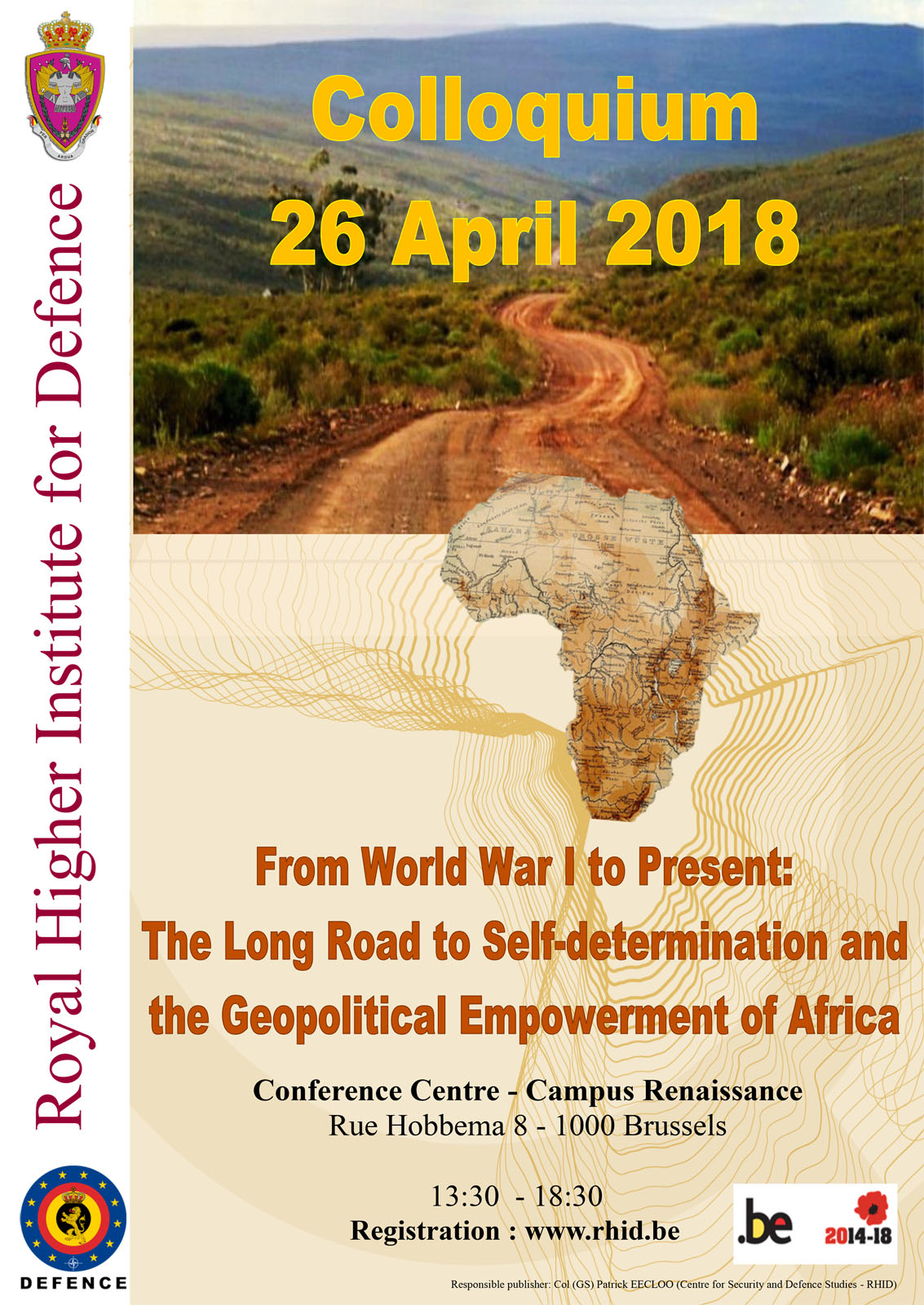 The First World War awakened new expectations among some Africans. A million people died in East Africa alone during the conflict. Many Africans fought in Europe as well, defending the interests of their colonial powers, while being also exposed to new views and ideas. Crucially, these were based on the “Fourteen Points” formulated by President Wilson in January 1918 as statement of principles that was to be used for peace negotiations in order to end the war. Wilson’s proposals emphasised for the first time the right of people to self-determination as a cardinal principle in modern international law.
The First World War awakened new expectations among some Africans. A million people died in East Africa alone during the conflict. Many Africans fought in Europe as well, defending the interests of their colonial powers, while being also exposed to new views and ideas. Crucially, these were based on the “Fourteen Points” formulated by President Wilson in January 1918 as statement of principles that was to be used for peace negotiations in order to end the war. Wilson’s proposals emphasised for the first time the right of people to self-determination as a cardinal principle in modern international law.
However, at the end of the war, which had destroyed metropolitan economies and put colonial rule under pressure, Europeans turned once again to Africa to exploit further its mineral and agricultural wealth. The endorsement of the peoples’ right to self-determination by the victorious powers did not apply to the African continent. Eventually, the educated elite came to gain a greater influence in the evolving anticolonialist movement whose demands for independence and self-determination were to be further advanced and finally realised after World War II, contributing all the more decisively to the political liberation of Africa – as can be seen from the subsequent history of decolonisation that began in the early 1950s.
We propose this colloquium as a diachronic journey, starting from a historical perspective on the role and effects of the two World Wars on the spirit of self-determination and the decolonisation of Africa (panel 1), then questioning the post-decolonisation implications of the geopolitical and economic constraints faced today along the long road towards effective geopolitical empowerment of the continent, with a particular focus on Africa’s “new partners”, resources and conflicts (panel 2).
Convening renowned historians, human geographers, political and social scientists specialised in the field of African studies, this colloquium will take place on Thursday 26 April 2018 from 13:30 to 18:30 hours in the conference centre of the Campus Renaissance (entrance: rue Hobbema 8, 1000 Brussels). Please find attached the detailed programme of the event. Lectures will be given with simultaneous translation into Dutch, French, and English. Parking is available on the Cinquantenaire esplanade in front of the Royal Museum of the Armed Forces and Military History.We are looking forward to welcome you all and kindly ask you to confirm your participation by registering online on the RHID’s website: www.rhid.be.
Pre-registration is mandatory to access the premises and must reach us not later than Friday 20 April 2018.
Programme:
13:00-13:30 :Registration
13:30-18:30 :Colloquium
18:30-19:45 :Reception


